Education
Makerere University Hosts 3rd East African Teacher Education Symposium: A Regional Call to Decolonize and Re-imagine Education
Published
11 months agoon
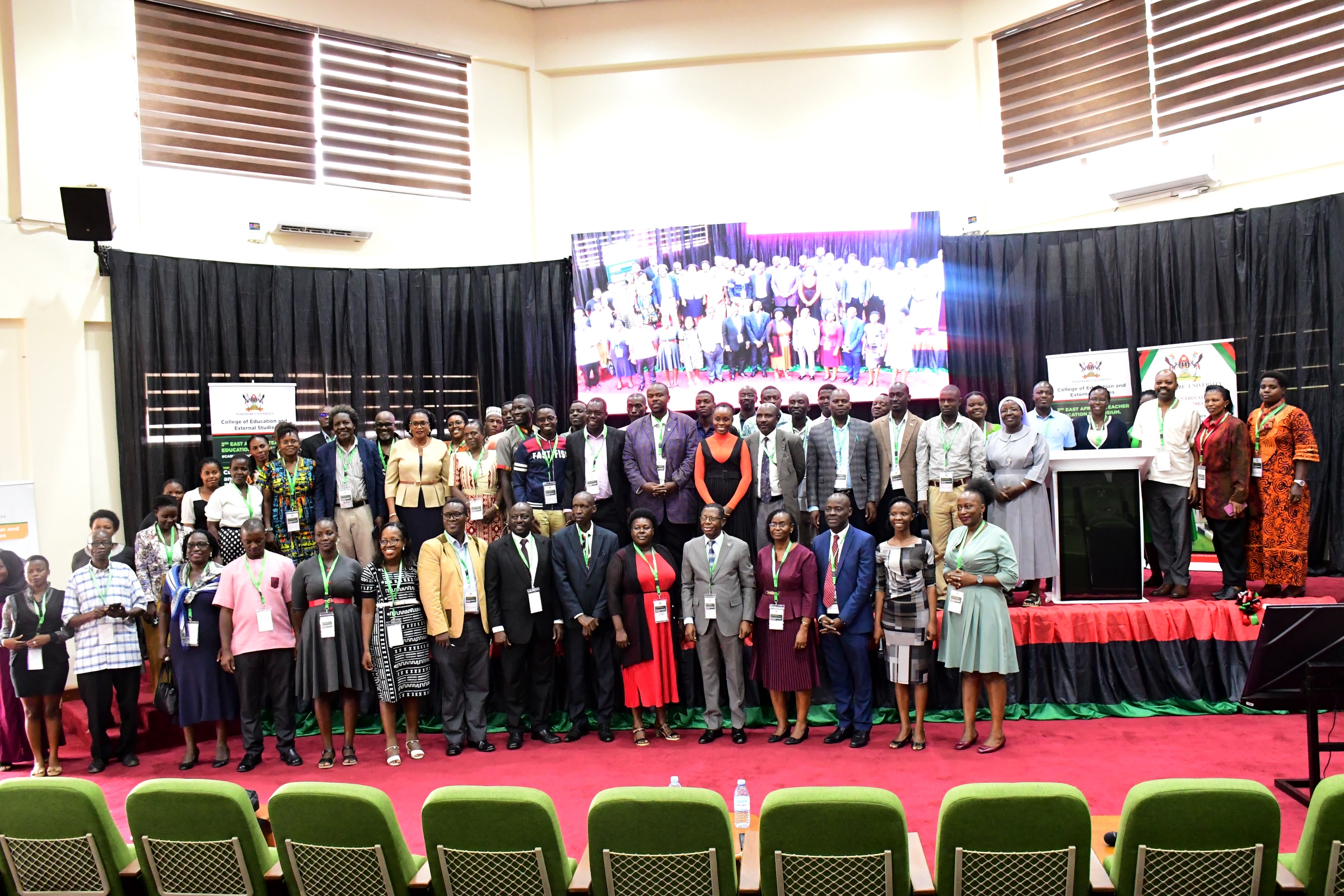
In a continued effort to champion regional dialogue on educational transformation, Makerere University, together with its partners under the Capacity Building for Research-Based Teacher Education (CABUTE) project hosted the 3rd East African Teacher Education Symposium (EATES) from 9th to 10th April 2025, under the theme “Curriculum Development and Decolonization of Education in East Africa.”
The symposium brought onboard participants from local and international academic institutions, researchers, policymakers, and development partners to reflect on teacher education and curriculum reform.
Organized through the Norwegian Agency for Development Cooperation (Norad) supported CABUTE project through a collaborative effort involving Makerere University, Kyambogo University, the Uganda National Institute of Teacher Education (UNITE), the University of Bergen in Norway, and the Western Norway University of Applied Sciences, the symposium fostered dialogue on decolonial perspectives, pedagogical innovation, and cross-border collaboration in reshaping education to reflect African realities.
In her keynote address, Prof. Proscovia Namubiru Ssentamu, Deputy Vice Chancellor for Academic Affairs Designate at the Uganda National Institute for Teacher Education (UNITE) stressed that decolonization must begin at the individual level. She articulated that true transformation requires internal reflection and personal change, stating, “Decolonization starts with us—each one of us. It begins from within.” She warned against championing decolonization in word while remaining mentally and structurally tied to colonial systems, likening such contradictions to “wolves in sheep’s clothing.”
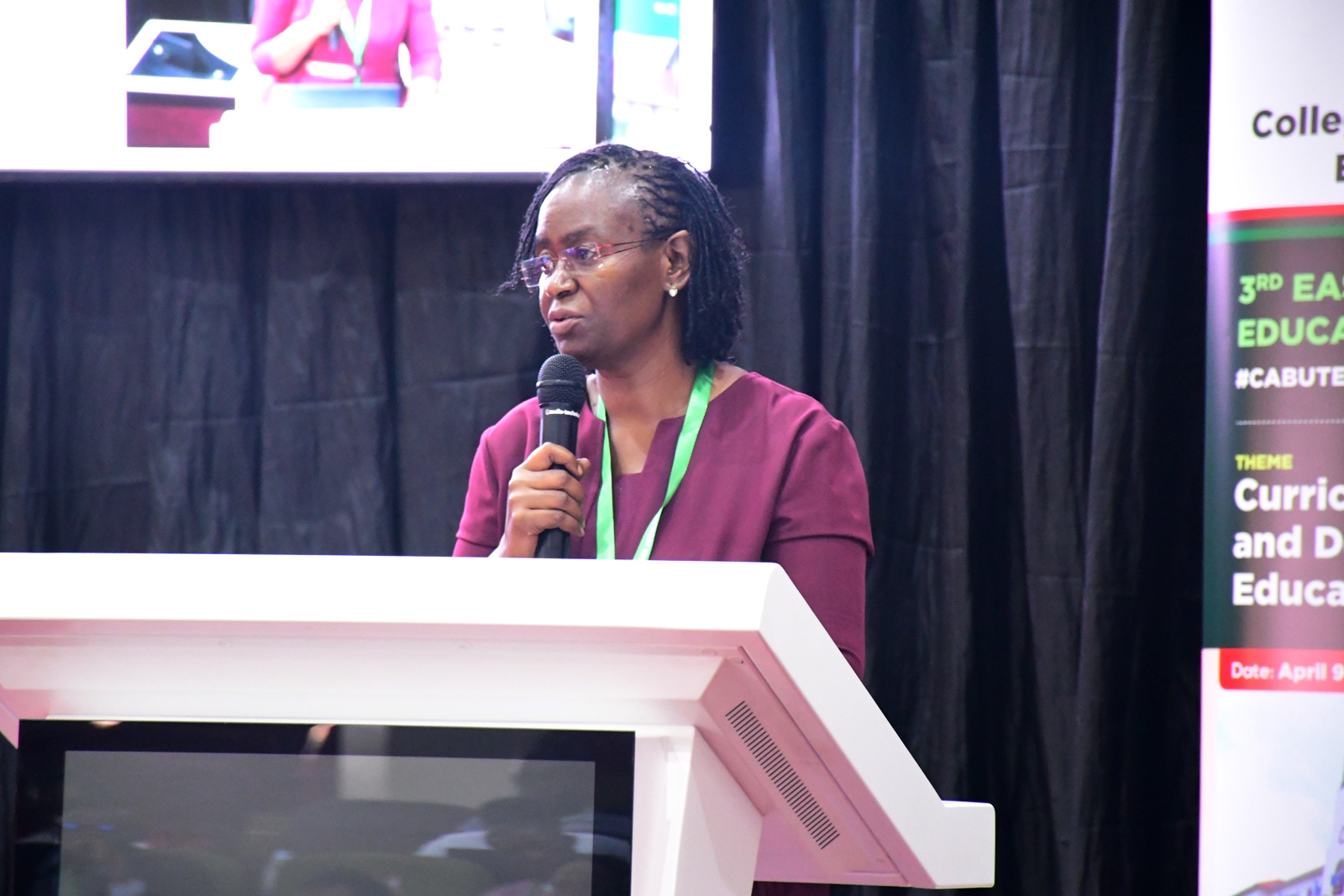
Prof. Namubiru highlighted how education plays a central role in shaping identity, development, and progress, arguing that African education systems must reclaim and integrate indigenous knowledge. She pointed out that despite post-independence reforms, colonial legacies persist, particularly in the continued use of foreign languages in education—an indication that the colonial past still holds.
“Despite significant advancements in educational access and quality, remnants of the colonial curriculum persist, prompting calls for frameworks rooted in indigenous and African perspectives. The continued use of foreign languages reflects this lingering colonial history. Curriculum development is central to this transformation—if you want to touch a nation, go through education,” Prof. Namubiru stated.
Prof. Namubiru questioned the absence of African symbols and tools in curriculum development spaces. “For instance where are the cooking pots?” she asked. Prof. Namubiru called for a radical restructuring of curriculum to reflect African realities. She categorized curriculum into three types: informal, non-formal, and formal. Informal curriculum, she explained, is spontaneous and rooted in community life, taking on the form of pre-colonial African education, driven by oral traditions and lived experiences. Formal curriculum, by contrast, is rigid, institutionalized, and focused on structured learning, often overlooking the value of informal knowledge. Non-formal curriculum exists outside traditional academics—such as cultural galas and extra-curriculum activities—but wondered whether these are meaningfully integrated into higher education. She criticized the rigidity of formal education, stating that even at the kindergarten level, it is disconnected from children’s real-life.
Prof. Namubiru underscored that curriculum design must begin with the needs of learners and society. She guided that curriculum design should not exclude the voices of teachers who implement it. “Teachers must be seen as co-creators, not just implementers,” she noted. She thus defined decolonization as the replacement of colonial knowledge systems with local and culturally grounded content, advocating for culturally relevant pedagogies rooted in African philosophies like Ubuntu, Ujamaa, and Pan-Africanism, describing them as essential pillars in reclaiming African identity and educational empowerment.
The Vice Chancellor of Makerere University, Prof. Barnabas Nawangwe represented by Prof. Buyinza Mukadasi called for urgent reflection and action in the education sector. He emphasized the need to rethink the evolution of education, especially within the current discourse on decolonization. Referring to the theme of this year’s symposium, he described it as “particularly timely,” offering a vital chance to reshape educational frameworks by integrating local histories and addressing global challenges.
“This event is special because it has undoubtedly become a cornerstone in the region,” Prof. Buyinza noted, “providing us with a platform to reflect on our successes and explore ways to transform future education.”
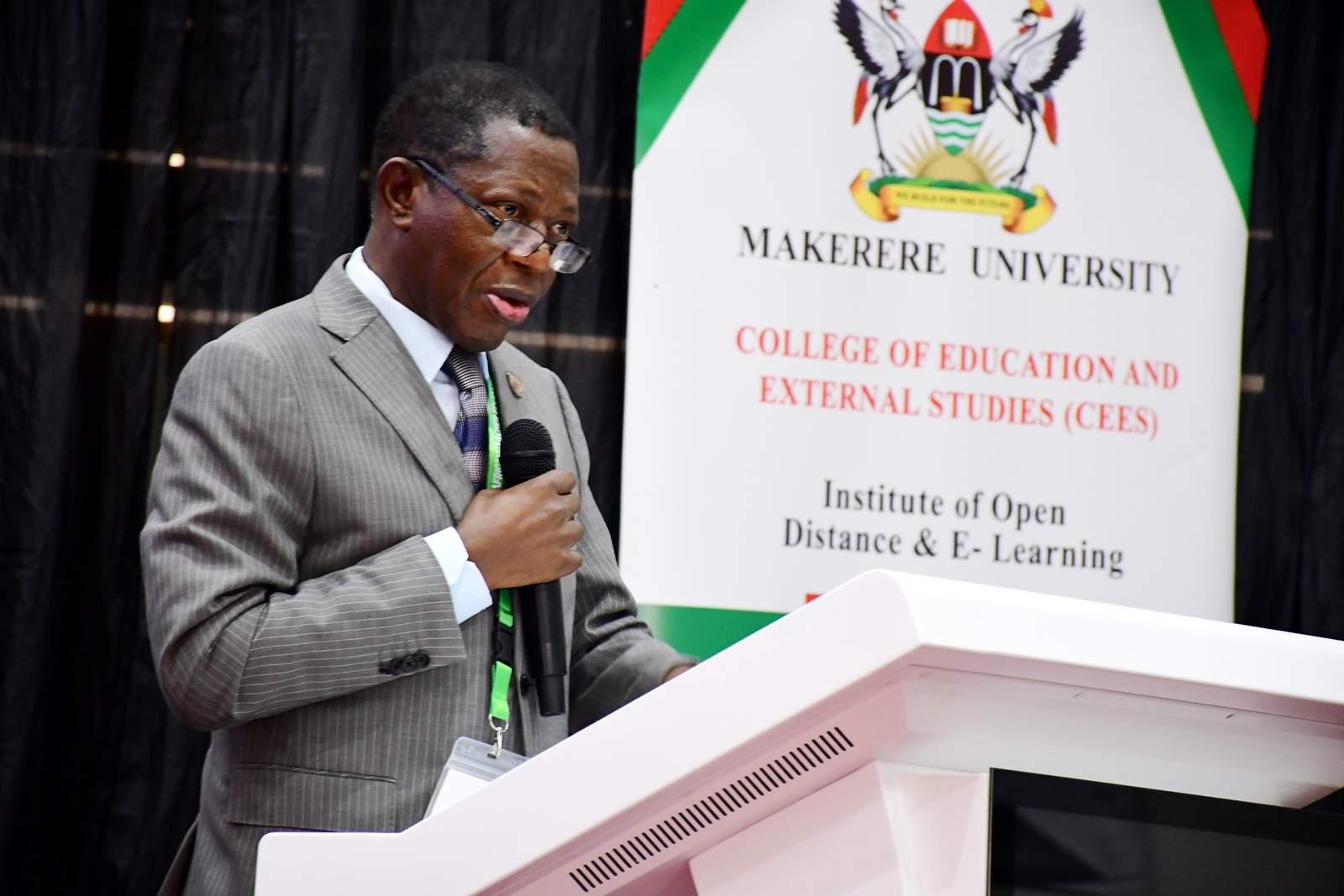
Prof. Buyinza highlighted the fast-paced global changes driven by technology and globalization, urging education systems to adapt to the trends. “The issues at hand are evolving quite fast. We live in a dynamic society, and therefore the aspiration for the future needs really critical thinking and reflection,” he said. He underscored the importance of lifelong learning and strategic positioning of African institutions to lead transformative progress.
Prof. Buyinza warned against lagging behind in the Fourth Industrial Revolution, just as Africa did in previous revolutions. “We live in a digital age, and we must keep pace with rapid advancements. The first, second and third industrial revolutions left us lagging. The fourth should not leave us behind!” He stressed the need to “revolutionize and reshape” the curriculum to prepare students for this era, integrating essential subjects such as English, mathematics, music, and foundational education.
He recognized the long-standing support from the Royal Government of Norway, which has funded infrastructure and academic initiatives at Makerere since the 1960s, including the construction of some buildings at the University. He also acknowledged the contributions of University of Bergen, other Ugandan universities, and international partners like the Western Norway University of Applied Sciences.
He urged participants to actively engage in the symposium’s discussions: “Let us embrace the opportunity to exchange knowledge, challenge prevailing paradigms, and explore new pathways for the future of education,” he said, officially declaring the symposium open.
Prof. Anthony Muwagga Mugagga, Principal of the College of Education and External Studies, specified the urgent need to decolonize African education, particularly in curriculum development. He explained that despite some progress, African education systems lag in fully embracing indigenous knowledge and cultural values.
Citing the Catholic Church’s shift in the 1950s to include African languages, music, and drumming in worship, Prof. Mugagga argued that religious institutions have outpaced education systems in decolonization efforts. “The church decolonized itself by, first, allowing indigenous languages to be used in their services. So, I think we are very late—extremely late. The church, which introduced formal education, has decolonized itself,” he stated.
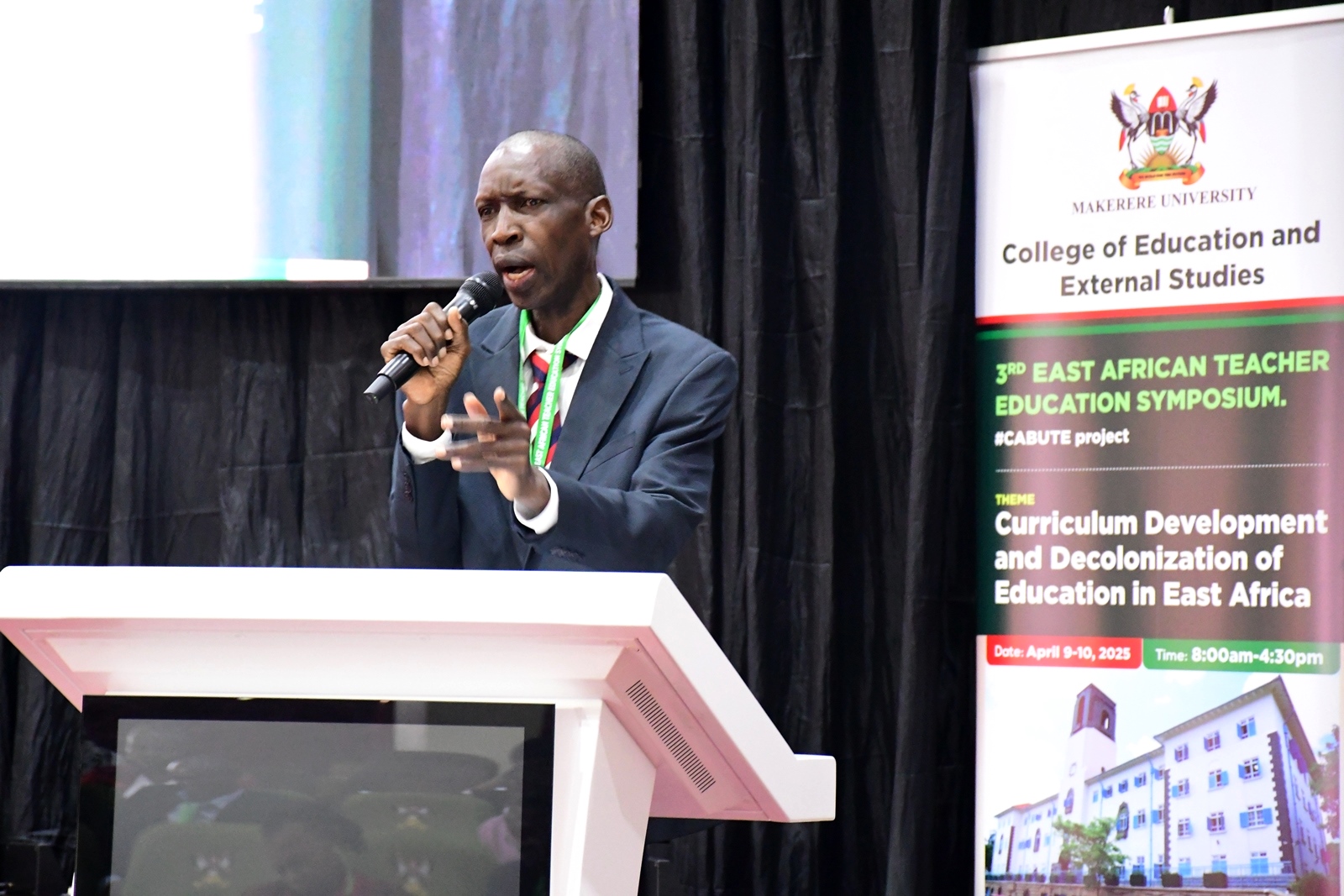
He challenged educators and policymakers to question the philosophical foundations of current curricula, invoking thinkers like Franz Fanon, Walter Rodney, and Paulo Freire. “Are we humanizing ourselves or dehumanizing ourselves? Are we freeing ourselves from oppression? How can I be decolonized if I am still wearing a necktie?” he posed.
Prof. Mugagga observed that the neglect of African folk songs in favor of Western ones in schools is indicative of the broader problem in African education: the lack of meaningful representation of indigenous culture and knowledge. He disclosed that decolonization goes beyond content—it also requires transforming teaching methods. According to him, teachers must be retrained to adopt learner-centered, culturally relevant pedagogies rooted in African traditions, shifting away from colonial-era methods.
In his thought-provoking address, Prof. Steinar Saetre, Principal Investigator of the CABUTE Project, expressed pride in the symposium’s evolution into a regional platform for educators and stakeholders to reflect, challenge norms, and envision a better future. He urged participants to ask critical questions: “Whose knowledge are we teaching? Whose voices are we prioritizing? What kind of society are we shaping through education?” Highlighting that teachers are more than content deliverers—they are culture bearers and community builders—he called for curricula to be continually interrogated and contextually grounded.
Prof. Saetre critiqued the lingering colonial influences in education systems, including language, assessment models, and epistemologies introduced under British rule. “Colonization is not just a thing of the past—it can take new, less visible, yet still powerful forms today,” he warned. He pointed to digital education tools shaped by Western, market-driven values as a modern example, acknowledging their benefits but cautioning against deepening inequalities where access is uneven.
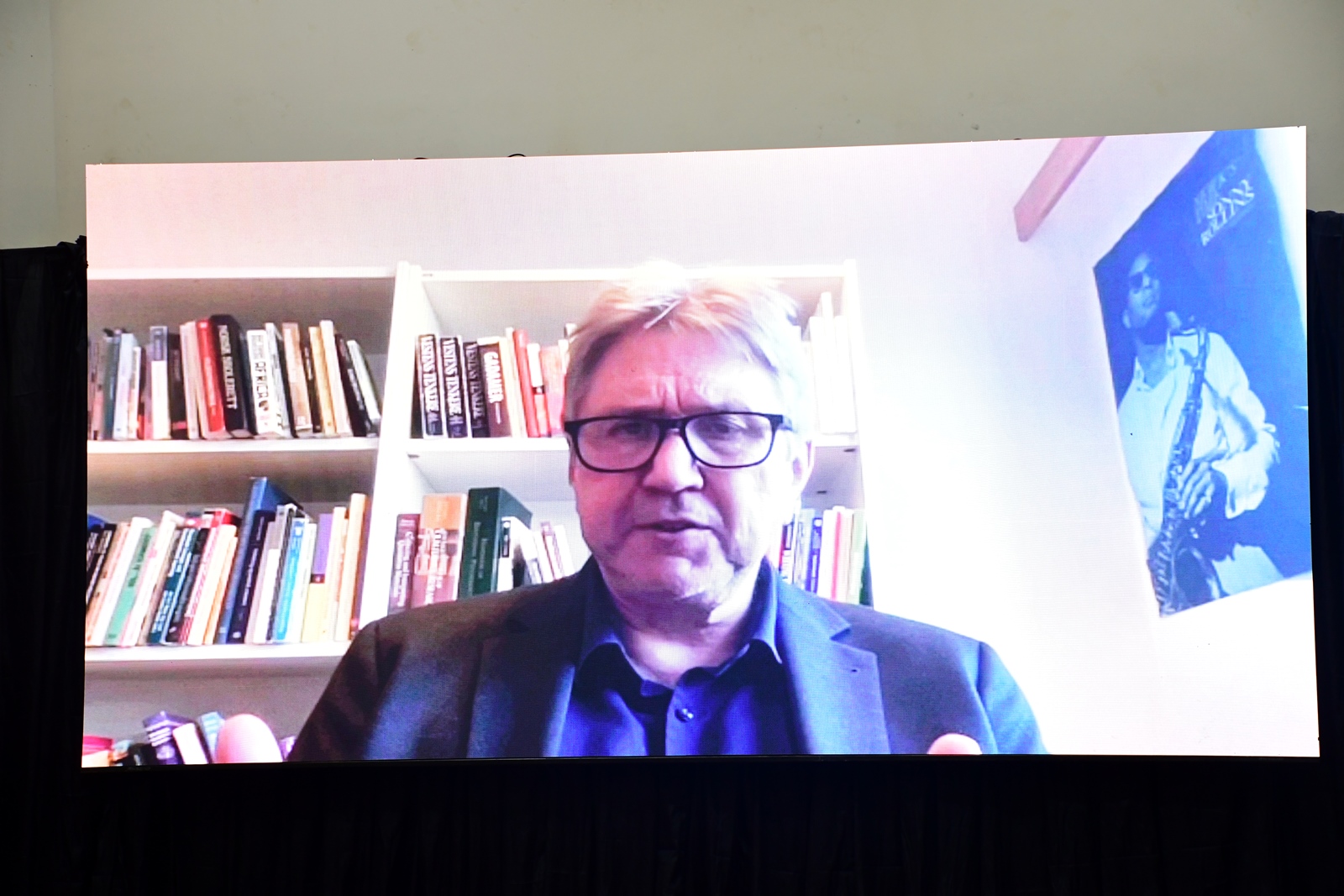
Recognizing the potential of digital platforms for inclusion and collaboration, Prof. Saetre highlighted the need to assess them critically to avoid inadvertently deepening educational inequalities — particularly where access remains uneven. He said that in a decolonized perspective, the digital revolution in education is a double-edged sword which offers opportunities, but only if we engage with it critically, contextually, and equitably.
Drawing from Norway’s experience, he noted a national shift away from excessive screen use, with renewed focus on printed books and foundational skills—signaling that even digital leaders are reassessing what matters most in education.
Though European, Prof. Saetre rejected the notion of being an outsider in decolonization efforts. He stressed that “decolonization is not solely an African responsibility, but a global one,” urging educators to reflect on their own assumptions, cultural biases, and inherited worldviews that often go unexamined.
Emphasizing dialogue and collaboration, he championed sincere cross-cultural conversations as key to creating more inclusive educational models. He encouraged integrative approaches that blend indigenous and Western knowledge, balance digital and printed resources, and stay locally relevant while embracing global collaboration.
In his remarks, Prof. Mathias Mulumba Bwanika, Dean of the School of Education at Makerere University, connected historical curriculum practices with current reforms. Reflecting on the symposium’s theme, he noted its alignment with ongoing regional innovations in curriculum and staffing.
Prof. Mulumba Bwanika, a key contributor to Uganda’s competence-based curriculum (CBC), described it as the best the country has ever developed. Unlike the former content-based approach, which focused on rote learning and fluency in colonial languages without imparting practical skills, he said that the CBC centers on the learners and equips them with relevant, real-world competencies.
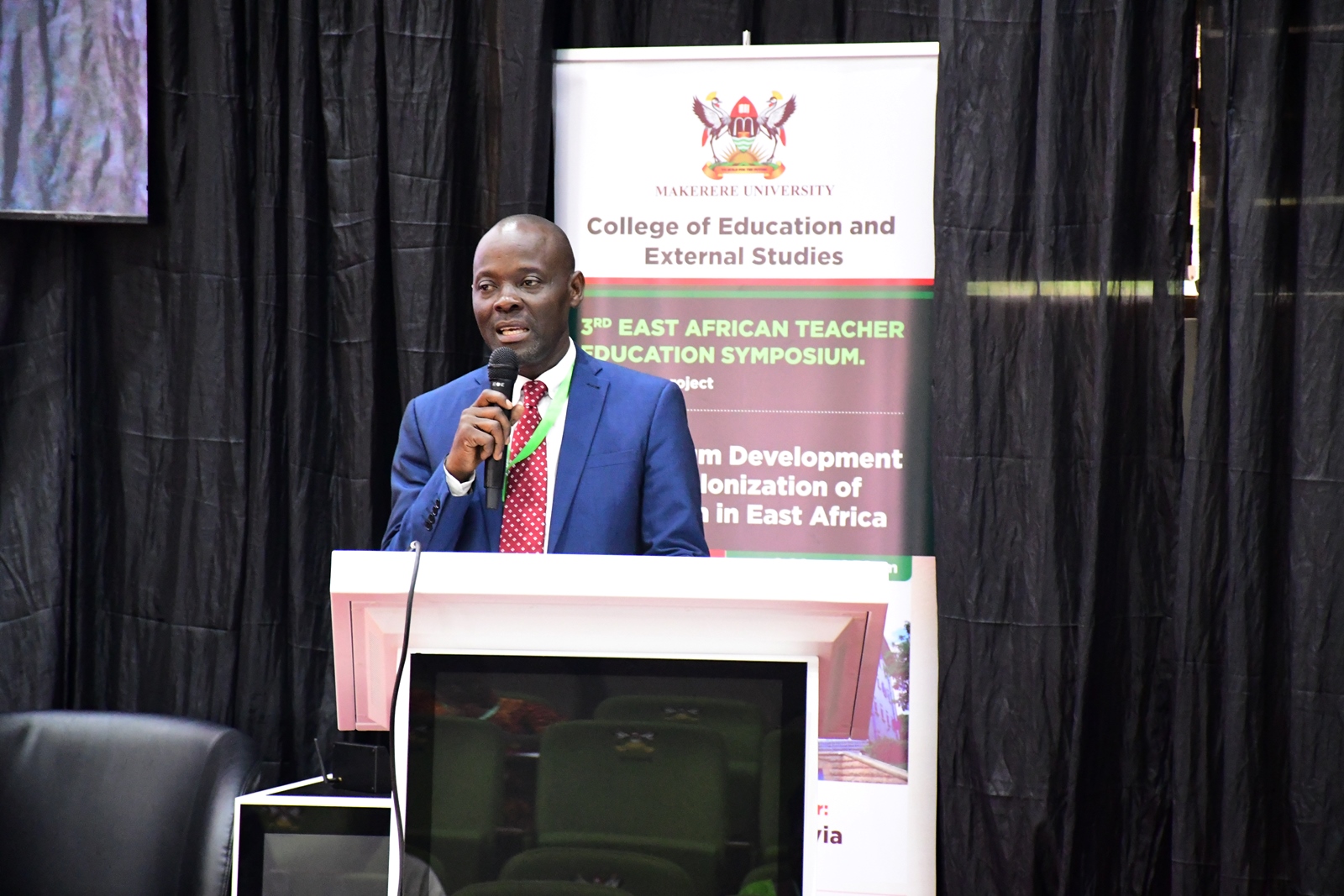
“Before the introduction of the competence-based curriculum, East African countries and Africa in general followed a traditional content-based curriculum which emphasized content over competence. One of the most notable outcomes of the content-based approach was that its recipients could speak the colonial language fluently, yet often lacked the practical skills and competences needed in the world of work,” Prof. Mulumba Bwanika said.
He cited CBC adoption timelines across East and Central Africa—highlighting Uganda’s official adoption in February 2020—and stressed the importance of instruction in familiar languages. He recalled the initial exclusion of local languages in Uganda’s CBC and how it took two years of advocacy to have them integrated.
Underscoring the pivotal role of teachers, Prof. Bwanika praised the National Curriculum Development Centre (NCDC) for the retooling efforts, but called for continued structured training for both in-service and pre-service teachers. He affirmed that curriculum development is an ongoing process that must evolve to meet learners’ changing needs.
Prof. Paul Birevu Muyinda, the Country Coordinator of the CABUTE Project, highlighted the initiative’s core objectives: strengthening postgraduate teacher education, building research capacity among teacher educators, promoting gender inclusion, and fostering stakeholder engagement. He elaborated that the symposium’s theme, “Curriculum Development and Decolonization of Education,” was a vital step toward transforming teacher education in Uganda.
Prof. Muyinda noted that the CABUTE project is designed to align teacher education with the competence-based curriculum introduced in Uganda in 2020, ensuring relevance to current educational demands. “Through this symposium, we are committed to advancing the objectives of the CABUTE project, ensuring that teacher education remains relevant, inclusive, and transformative,” he stated.
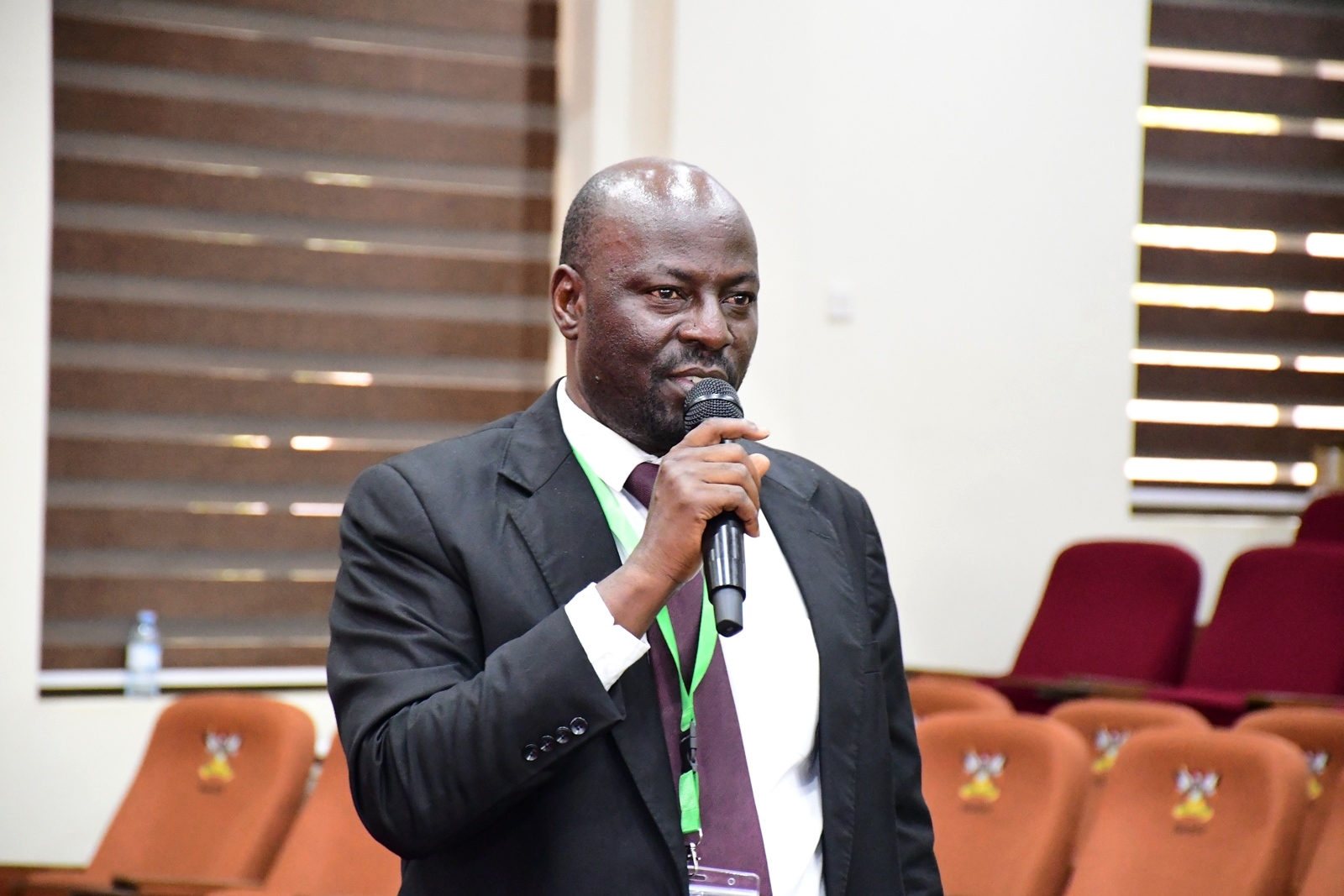
He extended appreciation to the Norwegian government for its support, acknowledged the efforts of the project team, and commended the local organizing committee for successfully coordinating the symposium.
As the opening session of the symposium concluded, participants engaged in a rich and open dialogue that illuminated critical challenges and opportunities within Uganda’s education system. The key insights included:
- Teacher Exclusion in Reforms: Participants expressed concern that the 2020 rollout of the competency-based lower secondary curriculum lacked meaningful input from teachers, leaving many unprepared and disengaged in the implementation process.
- Colonial Legacy in Education: Several participants lamented the lingering colonial influence, highlighting how local languages and cultural practices are often devalued—even by teachers. This has created a divide between urban and rural learners and undermined efforts to preserve indigenous heritage.
- Role of Teachers as Change Agents: It was emphasized that teachers must lead societal transformation rather than being driven by outdated community expectations. A shift in teacher training and mindset is crucial for meaningful decolonization.
- Implementation Gaps in Curriculum Reform: Teachers reported that the competency-based curriculum, though well-intentioned, is poorly implemented due to lack of retraining and resources. Without proper support, reforms risk failure, similar to past initiatives.
- Marginalization of Indigenous Languages: There were strong concerns about the continued punishment of students for speaking native languages and the lack of written material and literature in indigenous tongues. Participants warned that losing these languages equates to losing cultural identity and history.
- Community Skepticism and Parental Influence: Resistance from parents who equate quality education with Western ideals hinders the acceptance of indigenous knowledge in schools, complicating reform efforts.
- Digital Exclusion and Language: Participants observed that the global digital shift—especially in areas like AI and content creation—further sidelines communities that lack content in local languages.
- Mockery and Undervaluing of Local Languages: Students interested in studying local languages often face ridicule, revealing a societal bias that discourages linguistic and cultural pride.
- Barriers to Indigenous Language Research: A shortage of linguistic resources and skepticism about who can research indigenous languages limits academic exploration. Yet participants emphasized that language understanding, not ethnicity, should define research legitimacy.
Recognizing the value of individual efforts, the participants underscored that systemic change was essential for genuine decolonization. Making reference to the entrenched colonialism, the participants agreed that decolonization is a gradual process requiring resilience, unity and continued resistance.
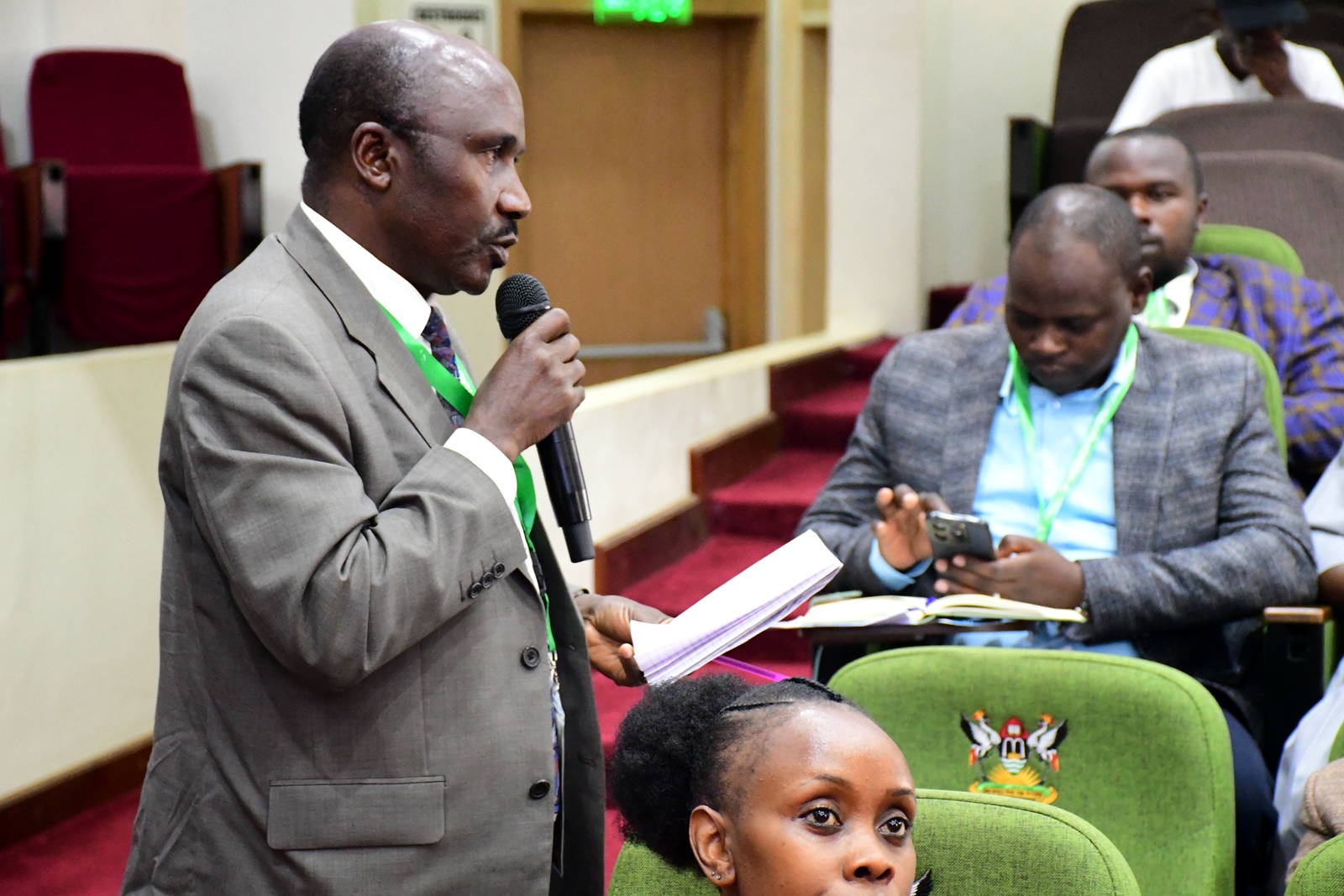
Tackling the challenges facing the adoption of the curriculum (CBC), Mr. George Wilson Ssabavuma, a curriculum specialist and developer at NCDC noted that resistance to change spans across stakeholders including school owners, teachers, learners and parents. He explained that the major issue is that 64% of the schools in Uganda are privately-owned, and many of these schools lack the necessary resources to effectively implement the new curriculum. This has led to hesitation and in some cases, outright resistance to the adoption of the new curriculum.
He pointed out that only 38% of the teachers have been adequately trained to implement CBC. This lack of training among educators, particularly in the practical application of new teaching methods presents a significant obstacle.
Noting that the transition is not solely the responsibility of curriculum developers, Mr. Ssabavuma informed the participants that the Ministry of Education and Sports must play an active role in ensuring that teachers are properly trained, school heads understand their duties, and ensuring that schools receive access to the resources that they require.
“The involvement of all stakeholders including the School administrators is essential for successful implementation of the competence-based curriculum. Without this collective effort, the expected results will remain elusive,” said Mr. Ssabavuma.

You may like
-


Meet Najjuka Whitney, The Girl Who Missed Law and Found Her Voice
-


Makerere University School of Public Health Graduates First Cohort of Cost-Effectiveness Analysis Short Course
-
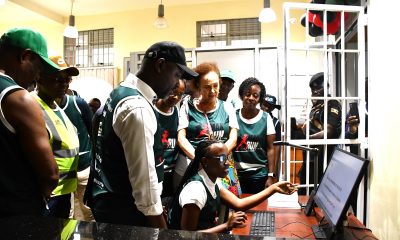

Students empowered to thrive through the Semester
-


Climate variability found to shape malaria trends in Yumbe District
-


Mak hosts First African Symposium on Natural Capital Accounting and Climate-Sensitive Macroeconomic Modelling
-


Uganda Martyrs Namugongo Students Turn Organic Waste into Soap in an Innovative School Project on Sustainable Waste Management
Education
Facilitating Access and Participation through Higher Education Access Programmes and Connected Education for Students with Refugee Backgrounds: A Global South Delphi Study
Published
2 months agoon
December 19, 2025
On 17th December 2025, a Delphi workshop was convened at Kampala Kolping Hotel, providing a collaborative platform for dialogue on standardisation and harmonisation of Higher Education Access Programmes (HEAP) across institutions, alongside strategies for portability and verification on demand through a HEAP Digital Passport. Discussions centered on accreditation, diversification of delivery and learner support, and future scenarios for HEAP and Connected Education.
Expert panelists underscored the urgent need for:
- Standardised HEAP frameworks across universities to ensure consistency in admission pathways.
- Harmonisation of HEAP curricula, duration, and procedures to eliminate barriers that hinder access and transition.
- Development of a HEAP Digital Passport enabling portability of credentials, secure digital verification, and integration with national qualification frameworks and international recognition systems.
Uganda, is one of the leading refugee-hosting countries with inclusive education policies, faces challenges in ensuring equitable access and participation for students with refugee backgrounds. While some universities offer HEAP as a bridging programme for marginalized learners, variations in programme design, delivery, and support systems still exist, which may lead to violations of accreditation. This calls for urgent standardisation and harmonisation to strengthen HEAP as a recognized transitional pathway into higher education.

Funded by Education Beyond Borders, researchers from Makerere University and the University of Edinburgh engaged stakeholders from public and private universities in Uganda through participatory workshops and expert meetings. This Delphi Workshop aimed providing a collaborative platform for dialogue on standardisation and harmonisation of Higher Education Access Programmes (HEAP) across institutions, alongside strategies for portability and verification on demand through a HEAP Digital Passport. Discussions centered on accreditation, diversification of delivery and learner support, and future scenarios for HEAP and Connected Education. The project is led by Dr. Rovincer Najjuma (Principal Investigator), with co-PIs Dr. Rebecca Nambi and Dr. Michael Gallagher.
Listening to experiences and co-creating solutions

Opening the workshop, Dr. Rebecca Nambi, a Senior Lecturer at Makerere University and Co-Investigator of the project, emphasized that the engagement was not about formal presentations, but about listening to experiences of students with refugee backgrounds that have accessed Higher Education using the HEAP programme and co-creating solutions with Expert Panelists.
Highlighting the persistent disparities in refugee participation in higher education, Dr. Nambi explained that while global and national efforts often focus on primary and secondary education, higher education remains critically under-supported. Drawing on years of research, she observed that refugee participation in higher education has historically stood at three percent (3%), later improving to about seven percent (7%), leaving the highest number of refugees excluded.
“Where do they go if they do not transition to higher education?” she asked. “Who supports them and how do institutions respond when learners arrive with disrupted educational trajectories?”
Shift from mere documentation of marginalization and adversity to practical interventions
Dr. Nambi underscored the importance of moving beyond research that merely documents marginalizationa and adversity. She advocated for practical interventions that improve systems for people with refugee backgrounds and strengthening education for host communities. “Addressing refugee education is part of a broader global agenda shaped by migration, conflict, and labour mobility in several countries.”
Dr. Nambi emphasized that HEAP provides a legitimate pathway for students with refugee backgrounds, and the ongoing adjustments aim to align the program with national standards and student needs.
Central to the discussion was the concept of connected learning, which promotes flexible, blended, and digitally supported education pathways that link learners across institutions, resources, locations, and systems.
Referencing the Makerere University E-Learning Environment (MUELE) as a key enabler of digital and interactive learning between lecturers and students at Makerere University, Dr. Nambi urged other universities to explore such a digital approach to catalyze the delivery of HEAP programmes. She noted that connected education is not solely about technology, but about harmonization, recognition, and collaboration among universities and regulators.
Comparing public and private universities, Dr. Nambi observed that private universities often have more flexible access pathways, and urged that documentation of students’ experiences of HEAP is critical to understanding gaps in provision, delivery and support
“Much of our work has involved examining how Makerere University and other universities are handling access for vulnerable students. We want to document lived experiences, analyze what is working and what is not, and generate evidence that can inform policy and institutional practice,” Dr. Nambi explained.
HEAP Emerging Challenges, lived experiences and future
Moderating one of the key sessions, Dr. Rovincer Najjuma, the Principal Investigator and a Lecturer in Digital Education and the Global South at the University of Edinburgh, guided participants through delphi workshop activities; these included engaging panelists in articulating expectations, uncertainities and risks, and developing future scenarios for HEAP accreditation, diversification of delivery and support and connected education.

Using participatory methods, participants shared insights through post-it notes and group reflections, capturing perspectives from expert panelists, HEI administrators, and students with refugee backgrounds. Dr. Najjuma encouraged an open dialogue, ensuring that student voices, particularly those with refugee backgrounds were centred in the conversation by encouraging them to share their experiences and journeys of participating in HEAP programmes.
The panelists acknowledged that while the HEAC has changed the nomenclature from HEAC to HEAP, programmatic provisions need to evolve, to address the inconsistencies that remain with respect to how institutions implement HEAP, duration, curriculum, and transfer of HEAP credit across institutions. Panelists shared about the critical gaps in awareness, mentorship, orientation, and institutional readiness to implement HEAP in ways that support refugee learners effectively.

On the issues faced by students with refugee status, participants identified several recurring challenges affecting access to and participation in higher education. These included low awareness of the HEAP programmes, fragmented and uncoordinated information dissemination, and difficulties in credential recognition and transfer across institutions and country host-country education systems.
Students highlighted low self-esteem, identity struggles, and stigma, especially where access programmes are perceived as inferior to Advanced High School Certificates. They also cited financial barriers, limited digital access, mental health challenges, and lack of learner-centred teaching approaches.
Key outcomes from the workshop
Panelists outlined key expectations to strengthen access and participation, which included the development of a standardized national HEAP curriculum, with clear and uniform entry requirements, and seamless credit transfer across institutions and host countries, facilitated by the development of HEAP Digital Passport.
Mentorship emerged as a cornerstone of learner support, alongside extended orientation programmes, life skills training, and entrepreneurial education. Participants emphasized the need for blended and online learning, supported by affordable internet access and institutional investment in digital infrastructure.
Policy coherence, stakeholder engagement in policy formulation, and timely communication of reforms were identified as essential for successful implementation. Participants called for gender-sensitive curricula, student representation structures, humane and trauma-informed teaching staff, and adequate learning resources, including reference materials.
HEAP: A Structured Pathway to Higher Education
Dr. Gidraf Joseph Wanjala, Principal of the College of Education, Open and Distance Learning at Kampala International University, highlighted the evolution of access programs in Uganda.
“Historically, the higher education access framework was known as the Higher Education Access Certificate (HEAC). Last year, it was updated to the Higher Education Access Program (HEAP), reflecting a shift from a certificate to a full program, approved by the Ministry of Education and Sports,” Dr. Wanjala said.

He explained that HEAP provides structured pathways for students to progress from diploma to bachelor degree levels, from mature entry to degree programs, and from senior secondary school to higher education. “This program is inclusive of refugee students and all marginalized groups, provided there is funding and space. HEAP supports students not just academically, but also through orientation programs, mental health training, reproductive health education, and gender-responsive support,” Dr Wanjala stated.
Challenging Misconceptions

Dr. Derrick Ssekajugo, Chair of the Special Purpose Committee on Academics and Acting Principal of the College of Economics and Management at Kampala International University, addressed public misconceptions about HEAP.
“Some perceive HEAP—or previously HEAC—as only for students who could not succeed in secondary school. That is not the case. For instance, we have students who initially studied Education but through HEAP transitioned into medicine. Today, they are fully qualified professionals,” Dr. Ssekajugo said.
He also highlighted the pedagogical shift from teacher-centred to learner-centred approaches in secondary education and the need for universities to adapt. “Students entering HEAP come with diverse learning experiences, and universities must adjust to integrate them effectively into competency-based programs,” he noted.
Dr. Ssekajugo added that benchmarking with both local and international institutions is critical to identify gaps and best practices, which inform ongoing program improvements and policy reforms.
HEAP and standardization, accessibility and inclusivity
Sharing their vision for HEAP, panelists recommended standardization, accessibility, inclusivity and foundational nature of HEAP. They advocated for a competence-based HEAP, with a standardized curriculum, offline and online access to resource books and materials, diversification of delivery and support through blended learning and a HEAP Digital Passport for portability and verification on demand.
Education
Real life project: Makerere University Vice Chancellor hands over constructed Wall Fence to Makerere College School
Published
3 months agoon
November 13, 2025
By Ritah Namisango and Harriet Musinguzi
On 12th November 2025, Makerere University officially handed over a newly constructed wall fence to Makerere College School. The real-life project was executed by technical students pursuing higher diploma courses in Civil Engineering and Architecture under the Uganda Vocational and Technical Assessment Board (UVTAB). The students are enrolled at the Centre for Lifelong Learning and Teaching, which operates within the College of Education and External Studies (CEES) at Makerere University.
The Centre for Lifelong Learning, in partnership with UVTAB, is involved in implementing real life projects within the communities-a practical approach that ensures that students identify problems within the community, hold collaborative discussions, and come up with projects to solve the problems.
The handover ceremony of the newly constructed Wall Fence was witnessed by key stakeholders that included officials from UVTAB, the College of Education and External Studies (CEES), the College of Engineering, Design, Art and Technology (CEDAT), the leadership of Makerere College School, UVTAB Deputy Executive Secretary and the technical students pursuing the higher diploma in Architecture and Civil Engineering.

The Vice Chancellor of Makerere University, Prof. Barnabas Nawangwe, represented by the Principal of the College of Education and External Studies, Prof. Anthony M. Mugagga, expressed heartfelt gratitude to Dr. Martin Muyingo, Head Teacher of Makerere College School, for providing a valuable learning space to students under the lifelong learning and teaching program. He acknowledged Prof. Dorothy Okello-Chairperson of the Uganda Vocational and Technical Assessment Board (UVTAB), Prof. Moses Musinguzi-Principal of CEDAT, course instructors, and students for their commendable contributions. He noted that the newly constructed wall stands as a testament to the power of lifelong learning and practical teaching.
The Vice Chancellor commended the management and staff of the College of Education and External Studies (CEES) for implementing programmes through the Centre of Lifelong learning, which are aligned to the Makerere University’s Strategic Plan. He observed that the partnership with UVTAB increases the number of students accessing quality education services, enhances lifelong learning, promotes practical education, and contributes to community transformation.

Congratulating the technical students upon this milestone, and in solidarity, the Vice Chancellor wrote: “I am an architect and courses in my profession go deep to my heart. Congratulations to the students, the engineers, and course instructors.”
Prof. Nawangwe emphasized the importance of architecture-related courses and praised Makerere’s longstanding commitment to student-centered learning, innovation, and thought leadership principles that have guided the university for over two decades. He highlighted that Makerere’s strategic direction aligns with Uganda’s National Development Plan IV and Vision 2040, which advocates for inclusive, equitable, and lifelong education. This vision, he said, reflects the aspirations of His Excellency President Yoweri Kaguta Museveni and the Government of Uganda’s education agenda.
He explained that the Centre for Lifelong Learning (CLL) at CEES, serves as a bridge between the university and the community. It offers opportunities to Ugandan youth and individuals who lack the financial means or academic qualifications to access Makerere’s mainstream programs, to join UVTAB technical education programmes, with instructors at Makerere University Centre for Lifelong Learning. Students enrolled in the program typically come from A-level backgrounds or hold certificates from technical institutions.

He highlighted that long before the Government of Uganda, through the Ministry of Education and Sports, restructured the secondary school curriculum to embrace competence-based teaching and learning, Makerere University had already been championing student-centered education. For over two decades, the university has promoted innovation, experiential learning, and thought leadership.

Ms. Jalia Nassaza, the Acting Deputy Executive Secretary of the Uganda Vocational and Technical Assessment Board (UVTAB), emphasized the importance of real-life projects within the Technical and Vocational Education and Training (TVET) curriculum. She explained that these projects enable students to identify community challenges, engage in collaborative discussions, and develop practical solutions ultimately shaping them into holistic professionals. Through this approach, learners gain essential skills in planning, teamwork, and applying theoretical knowledge to real-world scenarios. Ms. Nassaza emphasized the need for an education system in Uganda that equips students to solve local problems and improve their surroundings. “We want to make our education realistic by translating knowledge into solving problems,” she affirmed.

The Principal of the College of Engineering, Design, Art and Technology, Prof. Moses Musinguzi while congratulating the students upon the completed wall fence structure and other projects, noted that as professionals, scientists get a lot of public criticism because they are the core of providing solutions to societal problems. He said the commissioning of the fence was testimony that the university in partnership with UVTAB, was teaching students ways of solving problems around them. He said that as a college, CEDAT provides access to the required infrastructure in the labs, workshops, and studios, as well as technicians who support the teaching.
Prof. Musinguzi said Makerere University was considering a revision of the assessment, making continuous assessment total to 60%, while classwork is rated at 40%. He also mentioned the CEDAT model, whereby the university was considering utilizing students in technical subjects to support the Estates and Works Department in infrastructural maintenance and service works instead of hiring externally, and that students on both Diploma and Degree programs would be engaged. ‘We need to see scientists directly engaged in the development of the country,’ he emphasized.

Speaking on behalf of the instructors, Mr. Barnabas Mabonga highlighted some of the students’ requirements that included the need for basic tools, providing opportunities for their academic progression to degree programs, and strengthening the safety measures. Some of the actual projects that the AVTAB technical students under CEES and CEDAT have worked on at Makerere College School include: a yard constructed at the boys’ hostel, the wall fence, and a drainage system. He said 173 students out of whom 28 are girls, were enrolled in the Civil Engineering and Architecture higher diploma program. He informed the Vice Chancellor and other guests present that the students in the real-life learning and teaching programs were excelling in performance, with a pass rate of 99%.

Dr. Oscar Mugula, Coordinator of the Centre for Lifelong Learning, emphasized the value of community engagement in their academic programs. He noted that the partnership with Makerere College School began two years ago, when students from the center undertook repair works on the school’s infrastructure. The collaboration has proven mutually beneficial, with the beneficiary school experiencing reduced development costs, while students, particularly those studying technical drawing, gained hands-on experience through the perimeter wall project, which contributed to their coursework and project assessments for the year.
In partnership with UVTAB, the Centre for Lifelong Learning offers diploma courses in Civil Engineering, Architecture, and Electrical Engineering. The students pursuing these courses are examined and accredited by UVTAB. Students benefit from experiential learning at CEDAT, where they are encouraged to innovate using affordable, locally sourced materials. They are also placed in real-world workstations and garages to observe best practices and avoid unethical conduct. Graduates of the program either join the workforce or continue their academic journey at the university.

The Center for Lifelong Learning at CEES is charged with the duty to take the university to the community, providing opportunities to Uganda’s youth and persons interested in technical education, who may not have the requisite funds or grades to join the university’s degree programmes. The students on the program are either directly from A-level or other technical institutions.
Education
Digital Education: CEES holds stakeholders’ workshop to inform curricula for Postgraduate Diploma in Education (Online Track)
Published
4 months agoon
November 7, 2025
November, 4th 2025: Makerere University through the College of Education and External Studies, has been offering the Postgraduate Diploma in Education (PGDE) following the face-to-face delivery model.
In addition, to the physically taught Postgraduate Diploma in Education, the College of Education and External Studies, embarked on a process of curriculum development, for the online delivery model (PGDE-online).
This strategic option presents learners with a choice to either enroll for the physically taught (face to face) or the online Postgraduate Diploma in Education.
The introduction of the online mode of delivery for the Postgraduate Diploma in Education was informed by wide consultations, which revealed that many working adults including teachers, and distant learners, who wished to study the programme, were unable to attend. Engagements with such prospective applicants, called for the online delivery option.
To address this challenge, in March 2024, the College of Education and External Studies, embarked on developing the curriculum for the online option. The PGDE (online track) will be delivered on the Makerere University eLearning Environment (MUELE).
According to staff at the College of Education and External Studies, the online delivery model will enable learners to study remotely while acquiring modern pedagogical and digital skills essential for the 21st century education.
College hosts Stakeholders’ workshop to enrich curricula for the online delivery option:
On 4th November 2025, the College of Education and External Studies hosted a stakeholders’ workshop to enrich the curriculum document.
The workshop brought on board various stakeholders, including representatives from the Ministry of Education and Sports (MoES), the National Curriculum Development Centre (NCDC), the Department of the Academic Registrar, Directorate of Graduate Training, former students of the College who studied the Postgraduate Diploma in Education (face-to-face), staff from other units within Makerere University, and representatives from other education institutions including Ndejje University, Uganda Christian University-Mukono, and Uganda Martyrs’ University-Nkozi.
Remarks by the Head of Department:
Welcoming the participants, Dr. Genza Gyaviira Musoke, the Head of the Department of Foundations and Curriculum Studies thanked the stakeholders for accepting to dedicate time, to participate in the workshop. He called upon the stakeholders to suggest strategies aimed at ensuring that the PGDE delivered though the face-to-face model blends and complements the proposed online track.
College Principal emphasizes digital pedagogies:

The Principal, notified the stakeholders, that the College of Education and External Studies through the Institute of Open, Distance and e-Learning (IODeL), is credited for the operationalization of the Makerere University e-Learning platform (MUELE), which enabled online teaching and learning during the CoVID-19 pandemic.
Impressed by this milestone, the Vice Chancellor-Professor Barnabas Nawangwe, tasked the College of Education and External Studies, to come up with innovative teaching and learning pedagogies.
On this note, Professor Mugagga applauded the Department of Foundation and Curriculum Studies and the School of Education, for responding to the call from the Vice Chancellor, which has led to the development of the curriculum for the online delivery of the Postgraduate Diploma in Education (PGDE-online).
Emphasizing the trends in the education sector, he highlighted the technological demands presented by the Competence based curriculum (CBC), the National Teacher Policy of 2019, the Ministry of Education and Sports requirements for all teachers to be degree holders, and the need to embrace artificial intelligence (AI). He stressed that these reforms require teachers who are grounded in digital/online pedagogies, to nurture, teach and mentor, the next generation of students and teachers.
Presentation from the Director of Open, Distance and e-Learning:

Professor Paul Birevu Muyinda, underscored that the development of the online delivery of programs fits within the digital strategy for Uganda, launched by the Ministry of Education and Sports (MoES) in August 2024.
In line with the Ministry’s vision of increasing access to education, through the online delivery of the Postgraduate Diploma in Education, Makerere University is extending access to quality education services.
Professor Muyinda noted that the online delivery option, is aligned to the digital transformation agenda of the University, which is stipulated in the University’s Strategic Plan.
He acknowledged the Chairperson of the Committee, Dr. Harriet Najjemba, and her team for the valuable work, which has led to the draft curriculum, that the stakeholders had convened to discuss.
Opening the Stakeholders’ Workshop:

The Deputy Vice Chancellor (Academic Affairs), Professor Sarah Ssali, represented by Dr. Julius Kikooma, the Director of Graduate Training, commended the College of Education and External Studies, for the timely intervention, that will enable students to access quality education online. Noting that the evolution of academic programmes is within her mandate, Professor Ssali thanked the College for bringing on board various stakeholders, to provide valuable ideas.
Presentation of the proposed curriculum for the PGDE (online):

Presenting the proposed curriculum, Dr. Alfred Buluma from the School of Education highlighted the comprehensive design, online teaching and learning infrastructure for programme delivery, programme objectives and outcomes, core course units and electives, employment prospects, as well as, the availability of competent and technologically grounded staff to deliver the programme.
Dr. Buluma explained that the Postgraduate Diploma in Education (online) shall be a blended programme, heavily online, and with limited face-to-face interactions. He emphasized that Makerere University possesses adequate resources and infrastructure to support the program.
He acknowledged the involvement of staff from multiple departments: Humanities and Higher Education, Science and Technical Education, and Foundations and Curriculum Studies, alongside e-learning support staff.
Input from internal stakeholders:
Principal of the College:
Professor Anthony Muwagga Mugagga submitted that the proposed curriculum should embrace the ethical use of artificial intelligence (AI) in teaching and learning. He urged the participants to critically think about the delivery of experiments and practical classes online.
Reflecting on the remote areas in Uganda, where citizens do not have access to electricity and Internet, Professor Mugagga challenged the stakeholders, to bear in mind, the issue of inclusive education, and the possibility of delivery of online education, to teachers and students in such areas.
Directorate of Graduate Training:
Associate Professor Julius Kikooma, guided that the programme should strengthen the research capabilities of students/learners. He explained that the programme should provide a linkage to the research priorities stated in the Makerere University research agenda, as well as, the National Development Plan (NDPIV). As the team designs the curriculum, he encouraged them to study the University Senate guidelines document. He advised the team to include the knowledge areas, and learning outcomes. Citing the Graduate Students Handbook, Associate Professor Kikooma stressed the section on quality assurance that highlights the following competence areas: disciplinary knowledge, transferable skills, professional, and research competences.
Department of the Academic Registrar:

Stating its responsibility, the Senior Assistant Academic Registrar-Ms. Enid Kemari, who represented the Academic Registrar-Professor Buyinza Mukadasi, explained that the Department ensures that the proposed curriculum meets the standards set by the University and the National Council for Higher Education.
She referenced the Makerere University Policy on Open, Distance, and E-Learning, highlighting its main objective of increasing access to higher education through flexible learning modes. Ms. emphasized several key policy areas critical to the new online teacher education programme.
She commended the School of Education for aligning its program with national and institutional policies, noting that it will enable teachers, especially those already employed, to upgrade their qualifications without leaving their jobs. “It will contribute significantly to improving education quality in Uganda,” she said.
Plenary Session involving external stakeholders:

The plenary session provided the following recommendations.
- The online delivery should encompass the 21st century education expectations and demands of a learner and teacher.
- In addition, to increasing access to quality education, the curriculum document under the section “justification of the programme” should state the new areas in the education field, and the changed context under which teachers are operating.
- It should emphasize using the Makerere University e-Learning Environment (MUELE) in both teaching and learning.
- The curriculum should focus on developing the skills of learners (not only as those being taught), but also being empowered as learners to teach using the online delivery.
- There is need for retooling courses for both the teachers and learners as well as engagements on using artificial intelligence (AI) ethically.
Way forward:
Dr. Genza Gyaviira Musoke, highlighted that the input from stakeholders would be incorporated into the proposed curriculum. He briefed the participants that the proposed curriculum would be presented to the School of Education Academic Board, the College of Education and External Studies Academic Board, the University Senate and Council, and to the National Council for Higher Education.
Trending
-

 General2 weeks ago
General2 weeks agoAptitude Exam (Paper 1) Results for the Mature Age Entry Scheme 2026/2027
-

 Health5 days ago
Health5 days agoUganda has until 2030 to end Open Defecation as Ntaro’s PhD Examines Kabale’s Progress
-

 General6 days ago
General6 days agoMastercard Foundation Scholars embrace and honour their rich cultural diversity
-

 General2 weeks ago
General2 weeks agoFor Youth by Youth – Call for Second Cohort Applications
-

 Agriculture & Environment4 days ago
Agriculture & Environment4 days agoUganda Martyrs Namugongo Students Turn Organic Waste into Soap in an Innovative School Project on Sustainable Waste Management